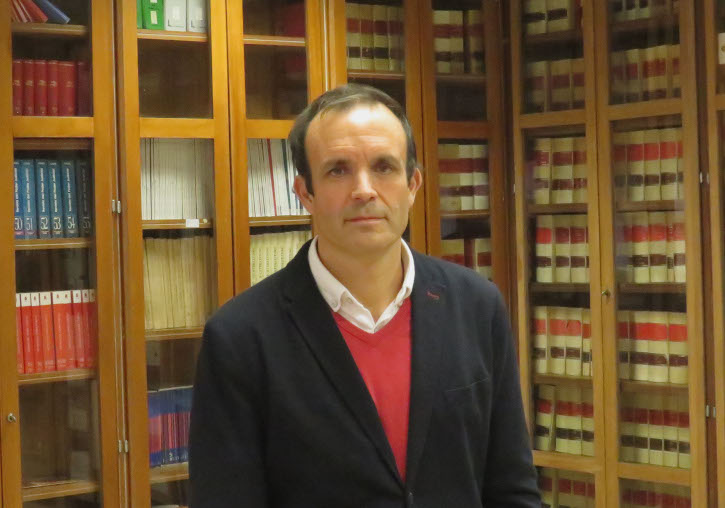A study compares the European models of the Public Prosecutor’s Office in the criminal process and advocates that in Spain it depends on the Government
- Scientific Culture and Innovation Unit
- December 17th, 2019

José Martín Pastor, Professor of Procedural Law at the University of Valencia, has researched the different models of organisation and action of the Public Prosecutor’s Office in the criminal proceedings in Spain, Italy, France, Germany, Holland, United Kingdom, Sweden and Portugal. The study finds that there is no uniform model and that the linkage of the Public Prosecutor’s Office with the Executive Branch is “imperative”.
At present, both the organic configuration of the Public Prosecutor’s Office and its actions in the criminal proceedings are a contentious issue, as there is an important debate as to whether the institution is part of the Executive or the Judiciary.
According to Martín Pastor, the independence of the Public Prosecutor’s Office from the Government hinders the development of a uniform criminal policy and political responsibility for the use of the institution, so in his opinion it is necessary to link the two agencies. The researcher believes that this link allows the Government to provide general instructions to guide its action, but without giving particular instructions in specific cases.
In the European case there are systems such as the Italian one, in which the Public Prosecutor’s Office is part of the Judiciary and is independent of the Executive. In Spain, Germany, the United Kingdom and Sweden, the Public Prosecutor’s Office is linked to the Government and is not independent. An intermediate model, such as the French and Dutch ones, is characterised by the Public Prosecutor’s Office being organically part of the Judiciary but functionally dependent on the Executive, and lacks independence. Therefore, according to José Martín, European law offers several models, each of which has advantages and disadvantages.
Likewise, “the principles of unity and hierarchy must preside over the internal organisation of the Public Prosecutor’s Office to avoid the lack of uniformity in the application of criminal policy and inequality of citizens before the law”, emphasises José Martín Pastor.
The objective of the research now published as a book (El Ministerio Público y el proceso penal en Europa) is to provide elements of judgment to decide which model of Public Prosecutor’s Office and what powers are to be granted in the future Spanish criminal process. This work has been developed within the framework of project RTI2018-095424-B-100 (La justicia penal ante los retos de la eficiencia, la seguridad y las garantías procesales, en especial la instrucción y las técnicas de simplificación de enjuiciamiento de los delitos), Funded by the Ministry of Science, Innovation and Universities.
José Martín Pastor is Professor of the Department of Administrative and Procedural Law of the University of Valencia since 2017. Twice a doctor of law (from the Universities of Valencia and Bologna), he has published more than a hundred scientific papers, and is the author of nine books. He has been recognized three (six-year) sections of research activity.
Book: Martín Pastor, J. (2019). El Ministerio Público y el proceso penal en Europa. Barcelona: Atelier. ISBN: 978-84-17466-78-7
















